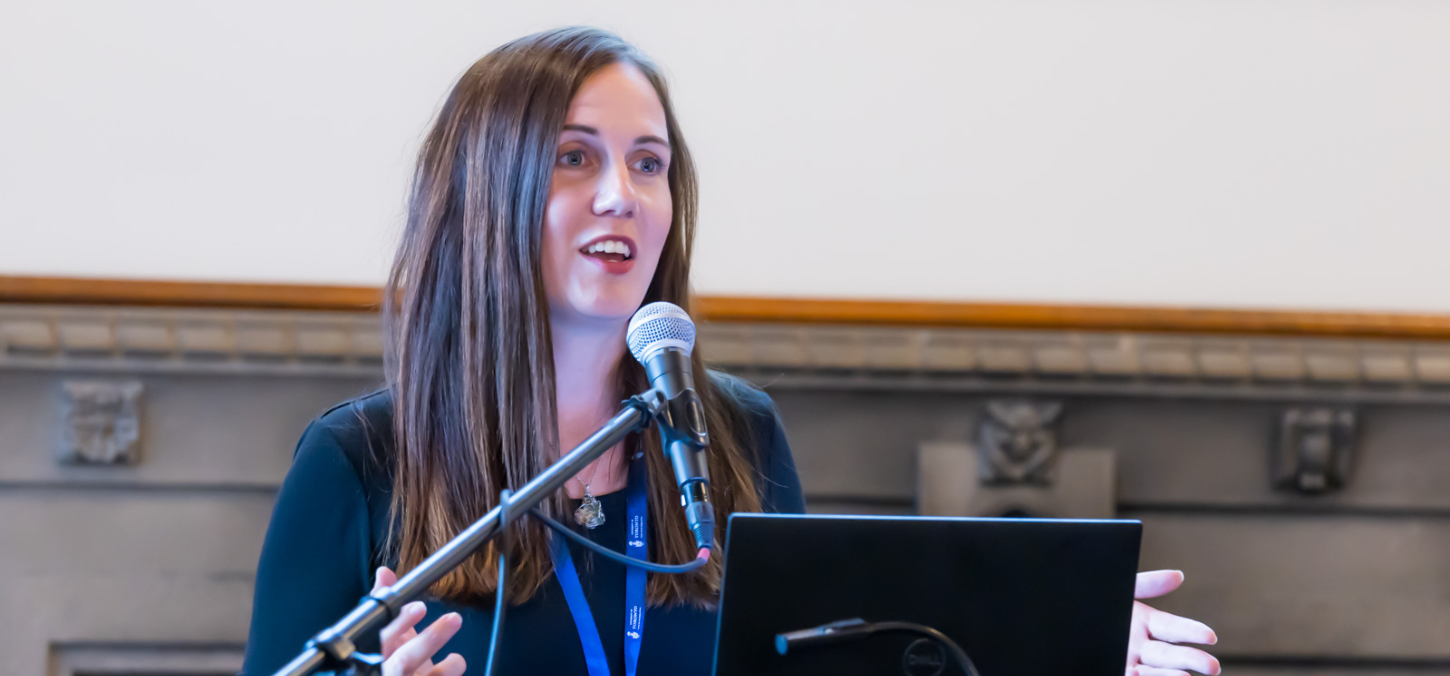
Collaborating on pain
By Diane Peters
Pain Week and other ways the U of T Centre for the Study of Pain tackles this complex experience
National Pain Awareness Week is coming up on November 3 to 9. The best place to discover more about the complexities of pain during this week — and beyond — is the University of Toronto Centre for the Study of Pain (UTCSP).
At this virtual centre, the Faculty of Dentistry takes the lead, working with the faculties of Medicine, Pharmacy and Nursing to tackle pain.
Dentists stick out in terms of the volume of patients they see every year, the number of procedures they do. They’re very front line, very community oriented
“It’s fantastic that Dentistry leads an initiative that's a collaboration between the four health science faculties, and really brings them together around an issue that cuts across all healthcare jurisdictions,” says Rachael Bosma, co-director of the UTCSP and a status-only assistant professor at the Faculty.
Those working in oral health have a unique insight into pain, which is why Dentistry has headed the UTSCP since it was formed in 1999. “Dentists stick out in terms of the volume of patients they see every year, the number of procedures they do. They’re very front line, very community oriented,” says Bosma.
As well, the profession deals with a real and pressing issue: one in four Canadians suffer from oral health pain or avoid eating certain foods because of problems with their mouths.
The healthcare community now appreciates how multifaceted pain is, so the UTSCP’s wide-ranging approach is more relevant than ever. As well, researchers and clinicians who are members of the centre have high-profile appointments across the pain community. (For instance, the president, president-elect and secretary of the Canadian Pain Society are affiliated.)
“We have a big presence on the national and international leadership stage,” says Bosma. “The centre is really leading this space.”
New ways of understanding pain
“There has been a shift, over the last 20 years, our understanding and our approach to management has evolved significantly,” says Bosma.
Importantly, in 2021, chronic pain was formally acknowledged as a disease in itself, not just a side effect of other health concerns. Experts now look at pain through a biopsychosocial model, appreciating that the situation, the social determinants of health and other factors have a meaningful impact on pain perceptions.
The rise of the opioid epidemic, meanwhile, has put increasing pressure on the medical community to better treat pain effectively without putting patients at risk for addiction.
The centre’s approach
Bosma says the UTSCP works in three “buckets”: research, education and knowledge translation. Regarding research, it supports research costs and salary for an early career researcher in each faculty affiliated with the centre. In Dentistry, that’s associate professor Massieh Moayedi, who specializes in neuroimaging.
Bosma herself does research on health systems and access to pain care.
With regards to education, every spring, the UTCSP runs its Interfaculty Pain Curriculum, which Bosma calls the “jewel in the crown.” This three-day educational series teaches 1,200 students from eight health disciplines from across the university.
“We do it from an inter-professional lens. So not just the basics of what is pain and how do you manage it, but our goals are to foster an understanding of the complexity and the appropriate management approaches.”
Toronto as a hub
The UTCSP will be in knowledge translation mode this coming Pain Week in November, hosting professional and public events to further the conversation about new approaches to pain. Pivotal will be the keynote address at Hart House by Etienne Vachon-Presseau of McGill University, who will be talking about predictors of chronic pain.
Next May, U of T’s Victoria College will host the Annual Scientific Meeting of the Canadian Pain Society.
It’s a busy time to work in pain and the centre and the Faculty are leading the conversation.
“It is a phenomenal testament to the dedication of the Faculty over the last 20 years to lead in an area like this,” says Bosma,” says Bosma. “Pain is poorly understood, highly stigmatized, and affects one in five Canadians. This is a huge issue. It is really going to take all of us coming around this table to address it and I think U of T is unique in its overwhelming capacity to do that.”
For more information on Pain Week activities, see the schedule here.
Top photo: Rachael Bosma at the 2023 Pain Week event